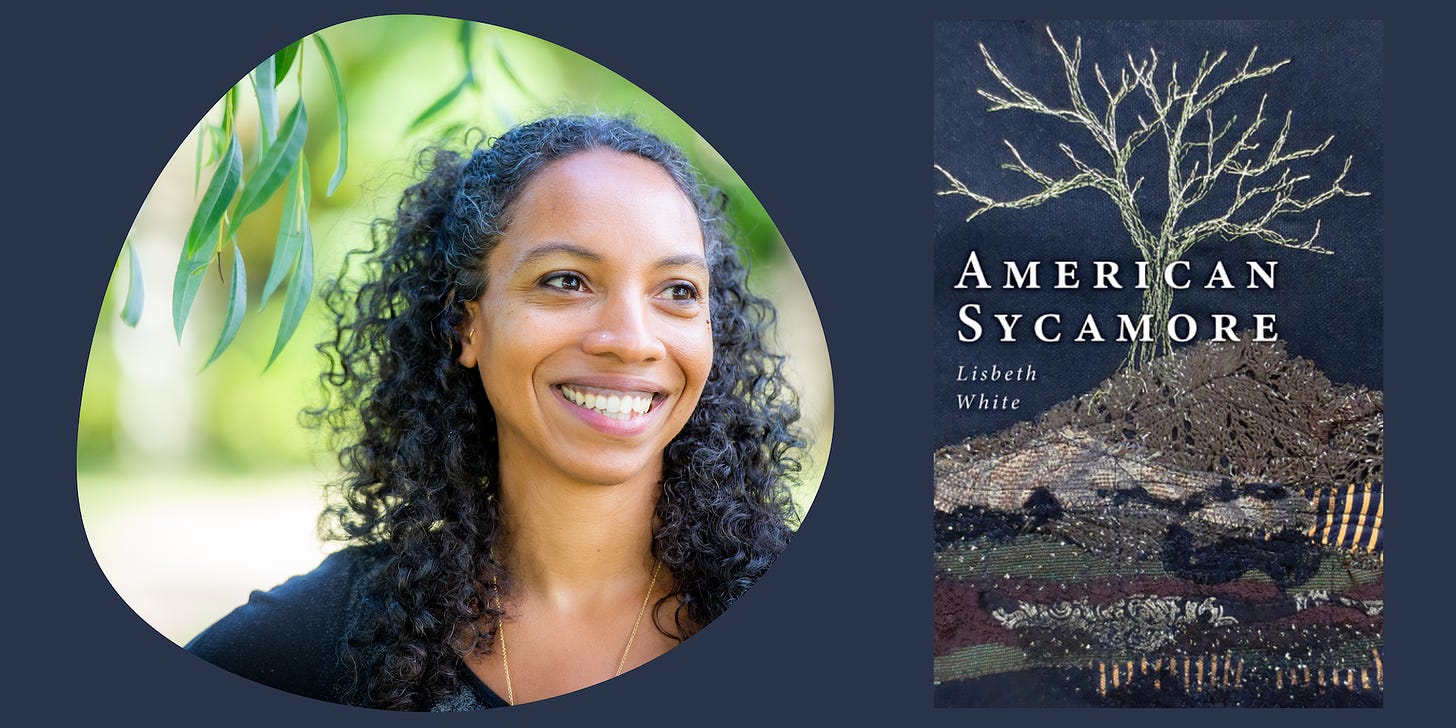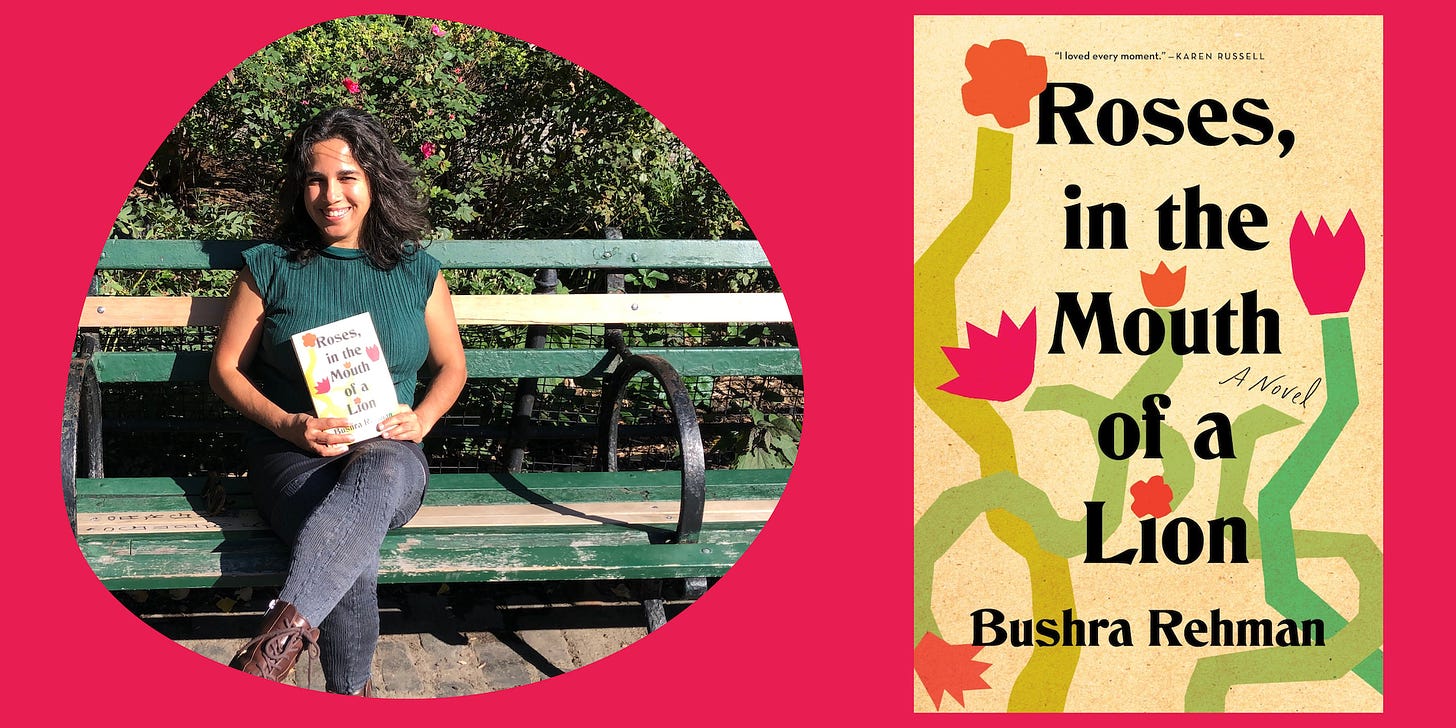“You are born knowing how to make the sounds of your heart”
On our earliest wounds and moving toward wholeness
I heard a story that comes to mind almost every time I look in the mirror these days. Community care practitioner and ritual leader Dori Midnight recounted it on a recent episode of For the Wild. It’s a classic piece of Jewish folklore, she said, told to her by her mother. I think you should listen to the episode, because Dori is an amazing being and storyteller. But for my purposes here, I will paraphrase it very briefly: In the womb, we knew everything—“all the wisdom of the universe.” Before we were born, an angel came, blessed us, and put their finger on our upper lip, right under our nose, where that groove is. And we forgot everything.
Dori has a beautiful take on this story. This means learning is really remembering, she says, and through learning (about plants, in this instance) we get to remember what our ancestors knew. This act of remembering, in the context of Empire and white supremacy, is an act of resistance and healing. I love this interpretation.
And also, when I look in the mirror at that indentation between my nose and my lip, I think about how it was the first wound. How I was once a celestial being, and becoming human meant that everything that I knew about the universe had to be taken away by the touch of an angel’s finger.
~~~
The first wound, but not the last. Being born into a society built on white supremacy and patriarchy means that most of us continue to be wounded. Our divine, messy, outrageous beings are forced into narrow expectations of what is acceptable behavior and what is not. What a good girl does/doesn’t do, or how a strong boy acts—with little room for existing beyond these binaries. How to make yourself smaller and quieter to protect yourself from white supremacy and patriarchal violence, or how behave to protect your white/male/heterosexual privilege.
In “Tarot for Change,” Jessica Dore puts it this way: “Each and every one of us experienced this rejection of who we truly are and came here to be in some form…. This old rejection wound is like a beast we lug around.”
But at some point, if we are lucky, or privileged in a multitude of ways, we have opportunities to start to heal from these rejection wounds. Which I see as not only a matter of self-care and self-love, but also about collective healing toward societal transformation. If I can learn how to love myself exactly as I am, I will be more able to see and love you exactly as you are. And then we might be able to move together toward creating a society that honors and celebrates our divine wholeness from birth, rather than one that wrenches, slashes, chips, and sands it away.
~~~
This is work that feels impossible to do alone. And so I am always grateful to find others engaging similarly, working through these tangles of trauma and healing, whether in person or through literature, music, art, and dance.
I’m excited to share with you this month two new books by dear friends and co-conspirators that provide stories, roadmaps, and flashes of insight on how to engage in this loving, healing, radical work.
Bushra Rehman has written a powerful coming-of-age novel, set in the tightknit Pakistani community of Corona, Queens in the 1980s. The protagonist of Roses, in the Mouth of a Lion, Razia Mirza, goes through both a series of early woundings and a series of experiences that ground her in the strength of who she is and where she comes from. She spends much of the novel trying to understand herself in the context of her family, her community, and her divine, messy, true self. At the end of the novel, in a moment of deep crisis, Razia is astounded by this self that emerges: “It was as if I always knew this day was going to come. Like there was another voice, an older voice, telling me what to do.”
American Sycamore, Lisbeth White’s debut poetry collection, also resonates with inner voices of knowledge and truth, ancestral recognition, and origins of trauma and healing. Deeply grounded in the natural world and ritual, these poems offer paths through swamps and redwood forests back to source and wholeness. “You are born knowing how to make the sounds of your heart,” she writes in “Awakening of Stones: Hypothesis / Central Argument.” “You are born knowing how to make your hands into wings.”
I found both these works welcome companions in my own journey toward wholeness. And I’m thrilled that they both agreed to share a little bit of their perspectives and writing with you here!
Below, Lisbeth offers a tender prompt that connects us to how we might imagine ourselves before the original woundings. And Bushra offers recommendations of novels and songs that form her main character’s sense of self, among and amidst the woundings and the love.
Prompting
by Lisbeth White
American Sycamore features a series of poems entitled "Awakening of Stones" which are written and organized following the format of a research paper, including an outline, abstract, hypothesis, methodology, and results. This series was born during a period of seeking out healing and repair. A central question came into my mind: what if I myself, and honestly most of us born into socially oppressive structures, started our lives feeling safe and beloved by the world? How might we move about in our lives, and with each other, if this was our baseline?
While the question took the poetic form of research in this instance, I am struck by the possibilities in reimagining a sense of origin, or a new mythology, for ourselves. This is a somewhat tender prompt, so I encourage setting up an intentional space to write—light a candle, do a grounding exercise, invite in beloved ancestors or guides, get a cozy blanket, or anything else that helps you feel safe and loved.
Writing a New Mythology
Begin by taking a few centering breaths, letting each inhale connect you into your inner world, your intuition, and your wisdom.
As you continue to breathe into your center, take a few moments to bring into your mind people, beings, communities, and places you care about and feel connected to. Jot down a quick list of these folks, perhaps five to 10. See if you can add in at least one aspect or version of yourself in this list.
After you have a list, choose one being or place to start with, and take a moment to let yourself sense, feel, and imagine that being or place at its most whole, happy, and well.
Write down how that place or being appears or looks, what they may sound like, how they may engage with you or others in this most whole, happy, and well state.
While you are writing and sensing into this being or place in this state, ask or notice: what is one thing this being or place knows about themselves in this moment of wholeness, happiness, and wellness? There may be a very clear statement or maybe a just subtle shift in what you are envisioning or feeling in your own body. Write down whatever arises! It's all information.
Now, complete the phrase "In the new mythology," (or "In the beginning,") with whatever information you received in response to the above question.
Continue to free write from there...
Engaging
by Bushra Rehman
Razia is a character I’ve always wanted to see in literature: a young Muslim woman experiencing both her Muslim spirituality and her queer desires. I found inspiration for Razia in my own life story and in the life stories of all of my queer South Asian American friends. In the ‘90s, in NYC and in cities all over the United States, there was a burst of queer South Asian American arts and activism. We didn’t have to choose between our cultures and our gay lives. We moved within overlapping circles of queer BIPOC artists and activists. Razia is one of us, and her character is written in honor of these queer communities.
Like many queer people before her, Razia is faced with a difficult choice: to stay in her childhood world and integrate or to strike out on her own. This isn’t something specific to Muslim communities. It’s important for me to say this because this book isn’t meant to fuel Islamophobia. There are many fictionalized and, to be honest, terrifying portraits of us in American culture. In Roses, I wanted to share a loving and complicated portrait of Muslim American families and communities. I’ve rarely seen three-dimensional portrayals of our families: our love, resilience, and humor.
Razia’s culture and religion form her being. She can no more reject them than reject her physical body. In Roses, I wanted to write of the early wound of breaking away from a religious, loving family and community and how difficult this decision can be.
Roses is also a love letter to New York City and ‘80s Bollywood and the novels I loved. Punctuated by both joy and loss, full of ‘80s music and beloved novels, Roses, in the Mouth of a Lion is a new classic: a fiercely compassionate coming-of-age story of a girl reconciling her heritage and faith with her queer desires.
Books
When I was asked to share a list of the novels the young Razia reads, I knew I needed to make a parallel list, because children’s literature—all literature—severely lacked diversity in the ‘80s. So the list below contains a book Razia reads in Roses, in the Mouth of a Lion alongside a recommendation for a book to read alongside or instead of the “classic.” Air quotes emphasized!
The Secret Garden, by Frances Hodgson Burnett, paired with Braiding Sweetgrass, by Robin Wall Kimmerer
From the Mixed-up Files of Mrs. Basil E. Frankweiler, by E. L. Konigsburg, paired with The Temperature of This Water, by Ishle Yi Park
The Catcher in the Rye, by J.D. Salinger, paired with The Hate U Give, by Angie Thomas
A Tree Grows in Brooklyn, by Betty Smith, paired with The House on Mango Street, by Sandra Cisneros and How the García Girls Lost Their Accents by Julia Alvarez
In one scene, towards the end of the book, Razia and her friend are at the Strand Bookstore in NYC, looking for a copy of Even Cowgirls Get The Blues. The bookseller Ben, inspired by the iconic Ben McFall, helps Razia and suggests a few other books. We'd love to share Ben's recommendations with you!
Song of Solomon, by Toni Morrison
Bastard Out of Carolina, by Dorothy Allison
Even Cowgirls Get the Blues, by Tom Robbins
Close to the Knives: A Memoir of Disintegration, by David Wojnarowicz
~~~
Playlist
Some of these songs are mentioned in the book, others are inside jokes for people who love Bollywood and some are just me being dramatic…. The order of the playlist follows the trajectory of the book. With the Bollywood movie songs, I highly recommend watching the videos! Many are queer anthems or have been repurposed as such, including the song from Mughal-E-Azam: Pyar Kiya To Darna Kya. Impossible to translate, but I offer this: If I have loved, what do I have to be afraid of?
Community/Announcements
If you are reading this when I’m sending it, it’s Election Day morning. You probably don’t need me to tell you this, but please go vote if you haven’t already! And, if it’s helpful, here’s a post about when we can expect to know the outcomes of some key elections.
You are invited to the following events to hear directly from Lisbeth and Bushra!
Virtual book launch for American Sycamore on December 8, 2022 @ 4pm PST/7pm EST, featuring Amber Flora Thomas, Tamiko Beyer, and Lisbeth White. Free; registration required.
Conversation & celebration of the launch of Roses, in the Mouth of a Lion on December 9 @ 6:30pm EST, at the Strand Bookstore in NYC with Bushra Rehman and Rajiv Mohabir, Music by DJ Rekha. $7.71; registration required.
Conversation with Bushra Rehman and Dulani on December 15 @ 7pm EST, at Odyssey Bookstore in South Hadley, MA. Free.
Another beloved friend, poet, and co-conspirator, Franny Choi also has a brand-new book out this month: The World Keeps Ending, and the World Goes On. And she is giving away 50 copies to organizers and movement workers! It’s an amazing book, and I highly recommend it! Sign up here to get a free copy: bit.ly/worldgiveaway
Thank you for reading to the end! I’m taking December and January off, so I’ll be back in your inbox for February’s full moon (which, fun fact, will be a micromoon) on the 5th! Until then, read some good books, listen to some good music, and know that you are celestial, exactly as you are!






